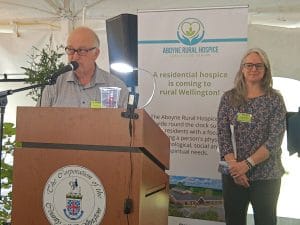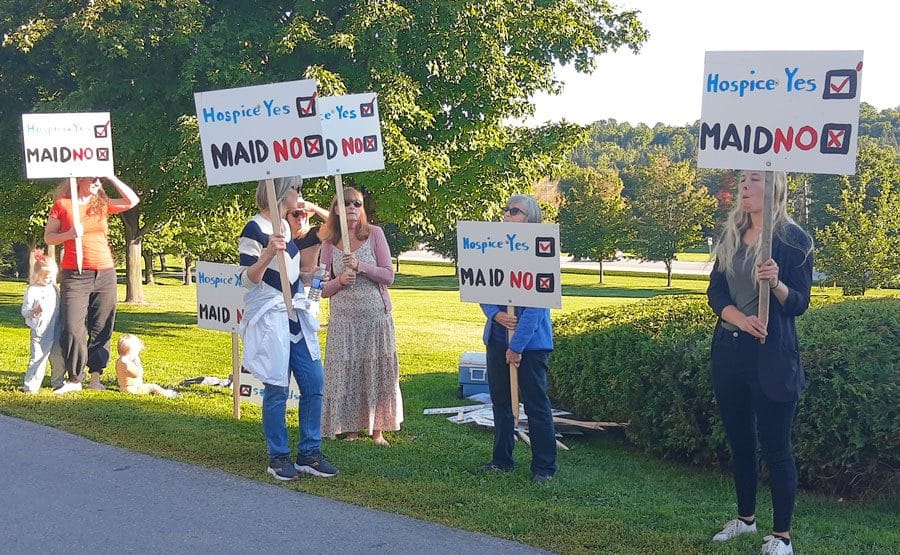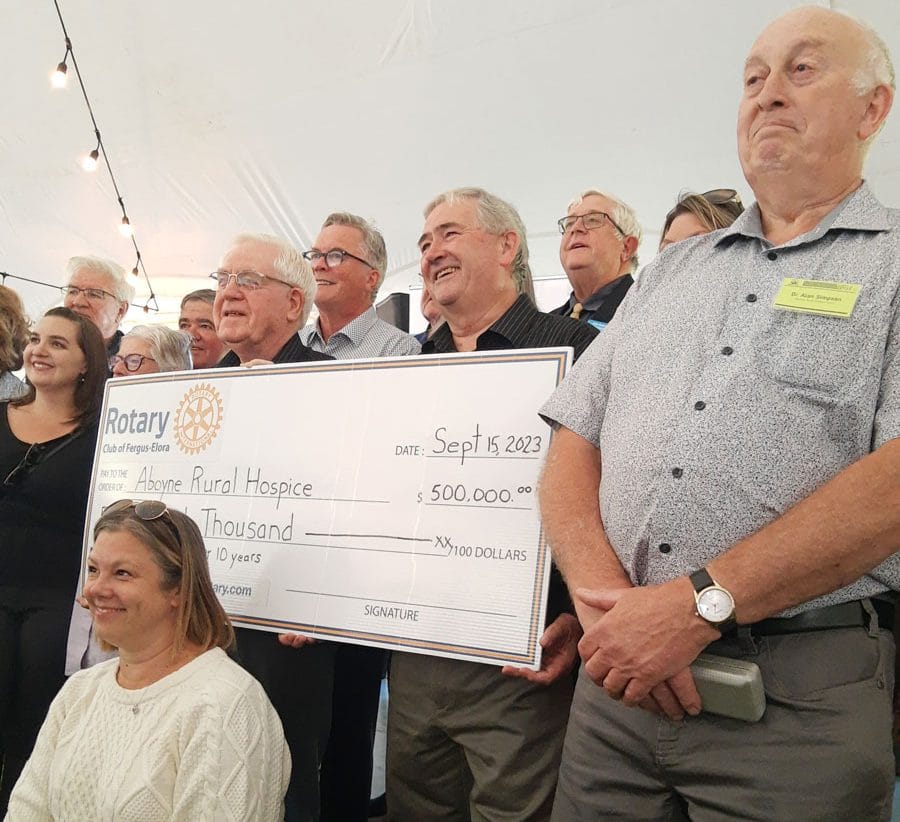ABOYNE – The kick-off for the Aboyne Rural Hospice on Sept. 15 got off to a monumental start with a $500,000 donation from the Rotary Club of Fergus-Elora.
“Four years ago, Rotary met with Dr. Simpson and Dr. Gower to talk about hospice,” said Rotary club co-president Bob Wright.
“The club felt hospice should be the number one priority for Rotary.”
Wright said the club, with just 32 members, hoped the donation would be big enough to get the project off the ground.
Retired doctor Alan Simpson and Dr. Sarah Gower told the crowd that gathered under a big tent on the grounds outside the Wellington County Museum and Archives – between 200 and 300 people – that the hospice project is incorporated, it’s now a charitable organization, and organizers are ready to receive donations.
Raising funds for construction of a 10-bed residential facility is now the focus of organizers.

Dr. Alan Simpson and Dr. Sarah Gower speak to guests at a kick-off event for the Aboyne Rural Hospice. Photo by Joanne Shuttleworth
Wellington County donated land near Groves Memorial Community Hospital for a hospice facility and that really got the movement going, Simpson said.
“We’re a moving movement,” he said.
It was a “who’s who” of Centre Wellington event, with many former and current Centre Wellington and Wellington County councillors in attendance.
Former mayor and warden Kelly Linton was there; current Warden Andy Lennox congratulated the team and voiced his support for the project.
“The number of people I see here today is testament to the vision,” Lennox said.
Mayor Shawn Watters said that while hospice is a place for people to die in a dignified way, “it is also about living,” he said.
“This is an important initiative. It makes us all be better people. It’s about looking after each other, supporting each other.
“That is what makes this community great.”
The Aboyne Rural Hospice will offer medical assistance in dying (MAID) to patients who request it.
There are protocols around who and how that can happen, and the practice became legal in Canada in 2016.
Some still see it as controversial and a small group gathered on the walkway leading to the museum to voice their opposition.
Included were members of Guelph Right to Life, Alliance for Life, and former Centre Wellington councillors Stephen Kitras and Steven VanLeeuwen.

About 20 people gathered outside the kick-off celebration to protest the intended use of MAID at the new hospice. Photo by Joanne Shuttleworth
“I support a hospice but not MAID at the hospice,” said Kitras.
“The founders didn’t want to partner with Hospice Wellington because they wanted to do MAID.”
“We believe MAID is wrong,” added Pat Rivett-Kitras. “Just because it’s legal does not make it right.”
Rivett-Kitras said she believes MAID will expand from a practice for terminally-ill patients who want it, to people with disabilities and others who might feel pressured to take that route.
“It will affect what healthcare is available. People will be pressured into it,” she said.
Back under the tent, Hospice Wellington executive director Pat Stuart said while her agency does not currently offer MAID, she does support a second hospice to serve Wellington County.
Stuart said Hospice Wellington, which turns 43 this year, sees about 300 patients a year, which is a lot for the 10-bed facility.
Offering MAID “is a board decision,” she said. “It’s revisited every year. But at this point we are busy with our palliative patients and our other services. We don’t have to do everything.”
Stuart said Hospice Wellington will continue to offer grief, bereavement, and other supports to residents of Wellington County, even after the Aboyne Rural Hospice is constructed and operating.




